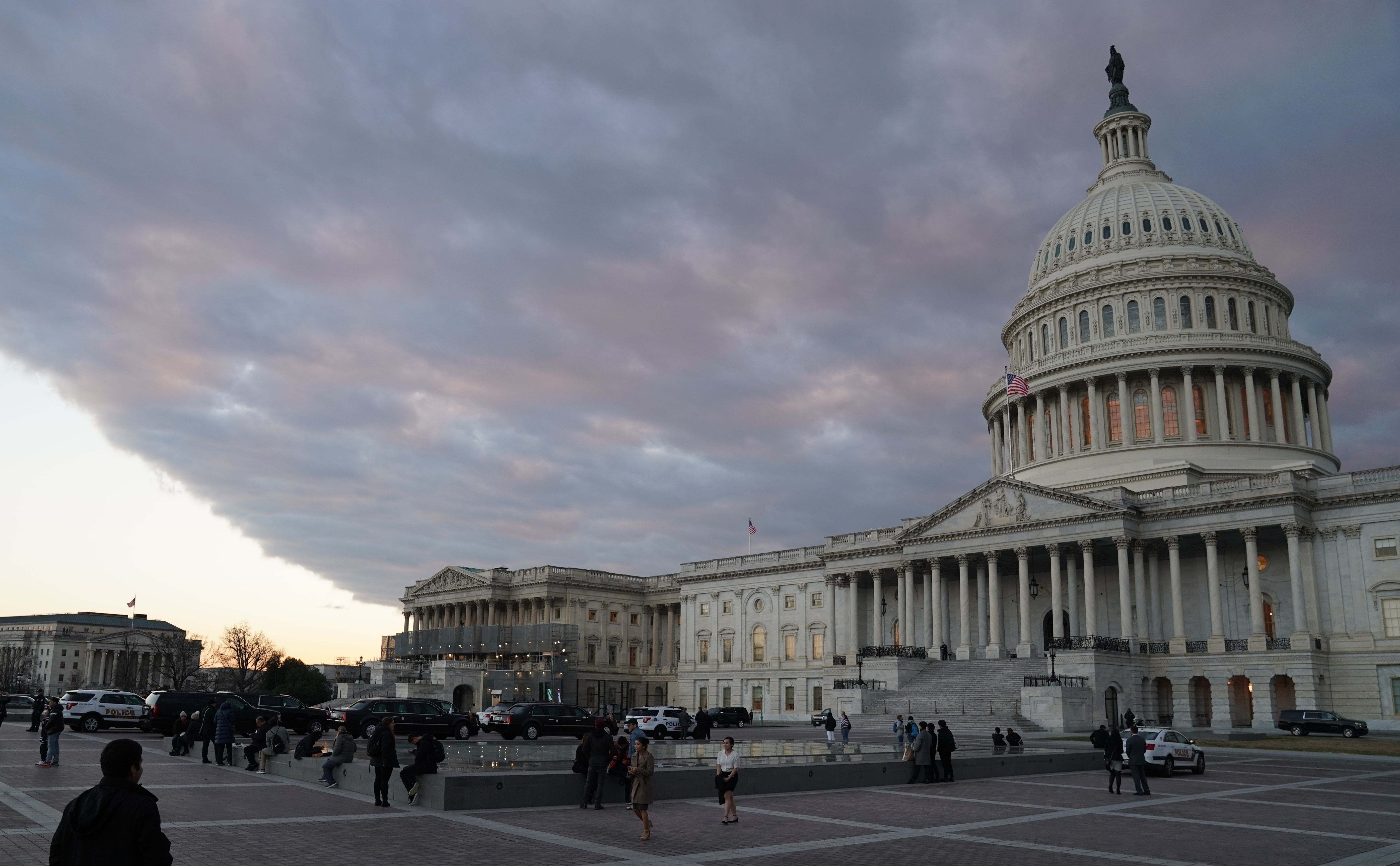Republicans in Congress are threatening to obstruct committee legislative activity if the Senate does not vote on a bill sanctioning the International Criminal Court that passed the House last week.
Sen. James Risch (R-Idaho), the ranking member of the Senate Foreign Relations Committee, said on Tuesday that he would not sign off on any legislation or nominations in the committee until Democrats agreed to take up the legislation, either in the SFRC or through a floor vote.
It is the latest in a series of efforts from the GOP to force Israel-related votes in an attempt to drive a wedge between Democrats.
While the Republican majority in the House has passed a number of bills linked to the war, Senate Majority Leader Chuck Schumer (D-N.Y.) has been reluctant to introduce them in the Senate.
Notably, the House has measures aimed at funding Israel’s war by making cuts to domestic spending, punishing the Biden administration for pausing one weapons shipment to Israel, and, most recently, sanctioning the ICC for issuing arrest warrants against leaders of Hamas and Israel.
Each of these bills received relatively small but meaningful support from House Democrats, with 42 of them voting for the ICC bill, despite White House opposition. Senate Democrats, who hold a slim majority, do not want to risk passing such legislation that the Biden administration has either publicly opposed or outright said it would veto.
Previously, in response to Schumer’s refusal to bring the bill that would have forced Biden to proceed on the weapons shipment that was withheld, Sen. Ted Cruz (R-Texas) said he would introduce a War Powers Resolution with the aim of shutting down the Pentagon-built humanitarian pier in Gaza, which Cruz charged was aiding Hamas.
According to reporting from late May, Cruz claimed the effort was intended to divide Democrats. He said he would have preferred the Senate vote on the House measure, but he was using the WPR as a vehicle because Schumer could not prevent a speedy vote on the floor.”This War Powers Resolution is a mechanism for forcing a vote and getting every Democrat on record — where do you stand? Do you support undermining Israel and supporting Hamas?” Cruz said.
So far, that effort has gone nowhere.
The latest attempt could have more legs, since Democrats have been largely receptive to efforts to punish the ICC. Bipartisan talks over possible ways to express opposition to the ICC chief prosecutor’s decision reportedly broke down on Monday, perhaps prompting Risch’s ultimatum.
Sen. Ben Cardin (D-Md.) the committee chairman, who was reportedly interested in negotiating a compromise bill with Republicans, communicated his displeasure with Risch’s decision.
“Defending Israel from this flawed and biased prosecution deserves the same united support we share for the entire U.S.-Israel relationship,” he told Punchbowl News. “Political maneuvering by Republicans have made a bipartisan bill more difficult, but I have continued talks with those Republicans who are genuinely interested in a bipartisan path forward.”
Even Republican Rep. Michael McCaul of Texas, the chairman of the House Foreign Affairs Committee, lamented that the House legislation had become a “partisan messaging bill.”
Before the text of the bill was released, many Democrats were sharply critical of the ICC ruling, and even Secretary of State Antony Blinken said he was open to working with Congress to find the “appropriate response.”
But as Connor Echols and Maya Krainc reported in RS last week, the House ICC sanction bill would not only punish the court, but also anyone who assisted its investigation of Israel’s conduct in Gaza.
The legislation “would also sanction immediate family members of those targeted,” Echols and Krainc wrote. “The sanctions include bans on entering the U.S. and doing business with American companies or citizens.”
Some of the 42 Democrats who voted in favor — more than either of the other ICC-related bills — may have calculated that the bill would be unlikely to pass the Democratic-led Senate in any event and that they would incur less of a political cost by voting for it in the House than if they voted against. The powerful American Israel Public Affairs Committee, or AIPAC, supports the bill and has already spent nearly $20 million through its super PAC, United Democracy Project, on defeating progressive House Democrats who have been critical of the way that Israel has carried out its Gaza military campaign.
While it remains unclear whether Risch's latest move to force a Senate, or at least an SFRC vote on ICC sanctions will succeed, it is likely to complicate matters for the leadership of a committee that prides itself on operating in a bipartisan manner.
















